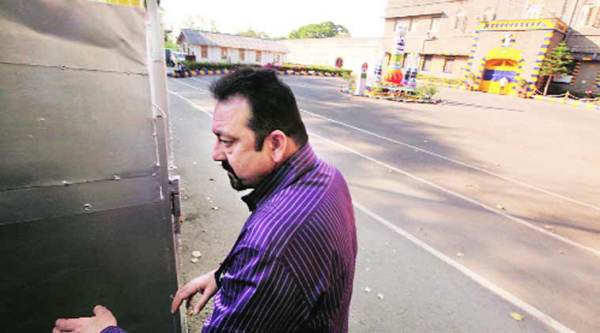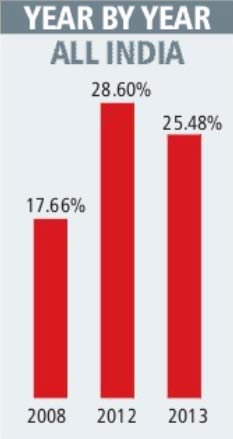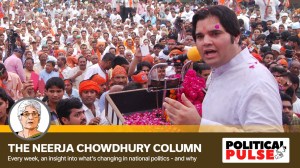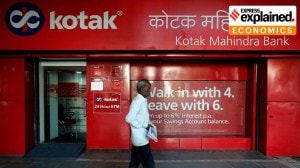- India
- International
Punjab paroles almost all convicts, Jharkhand almost none
District Parole Boards have the powers to release a prisoner for a period not more than 30 days.
 Sanjay Dutt returns to Yerwada jail at the end of his parole. (Source: Express photo)
Sanjay Dutt returns to Yerwada jail at the end of his parole. (Source: Express photo)
Sanjay Dutt returned to jail last week at the end of his parole, which wasn’t extended. This was in Maharashtra; across the country, states have differed widely on granting and denying parole. In Punjab, for instance, over 99 per cent of the state’s prisoners in 2013 had been granted parole. In Jharkhand, in contrast, the count was under one per cent.
Nationwide, too, the count has fluctuated. In 2013, out of 1.29 lakh convicts, 33,031 or 25 per cent were granted parole. Five years earlier, the count was only 17.66 per cent.
(chart loading…)
“Parole” originates from the French expression “je donne ma parole” meaning “I give my word”. It was used as a correctional instrument for the first time in the United States mainly to reduce overcrowding in jails and also as a means to allow a convict to maintain contact with society and help in his eventual rehabilitation.
In India, parole is governed under the Prisoners Act of 1900. District Parole Boards have the powers to release a prisoner for a period not more than 30 days, a duration that is counted as part of the sentence.
“It is the District Parole Boards that take a final call on granting parole. Their discretion and mindset is critical in granting the privilege,” former IPS officer Kiran Bedi said.

Criminologists say that because of the lack of judicial intervention in the way parole is granted, the system is not working the way it ought to.
 “The judiciary has time and again called for liberal use of parole. The role of the executive has however played a major hurdle in implementation of this system,” said Dr Dipa Dube, an IIT-Kharagpur associate professor who has researched the concept of parole. “There have been inconsistent orders given on flimsy grounds and parole has also been used to appease people in power and position. There is no uniformity in its implementation, which defeats the purpose of the concept.”
“The judiciary has time and again called for liberal use of parole. The role of the executive has however played a major hurdle in implementation of this system,” said Dr Dipa Dube, an IIT-Kharagpur associate professor who has researched the concept of parole. “There have been inconsistent orders given on flimsy grounds and parole has also been used to appease people in power and position. There is no uniformity in its implementation, which defeats the purpose of the concept.”
Criminologists note also that states lacking in prison reforms fare poorly in granting parole. “Statistics reveal that our judges and prison authorities are very diffident when it comes to considering community-based options of punishment such as release on probation, community service and release on parole, which should be viewed as options for decision-making authorities to choose from, rather than as leniency towards the offender,” said Dr Vijay Raghavan, associate professor and chairperson, Centre for Criminology and Justice at Tata Institute of Social Sciences.
Parole is not a prisoner’s right, but a privilege. It is granted on various grounds: if there is a death, wedding or emergency in the family, and to prevent his isolation from society. It is usually granted after a prisoner has served one year, but in special cases the one-year rule can be waived.
Apr 24: Latest News
- 01
- 02
- 03
- 04
- 05







































